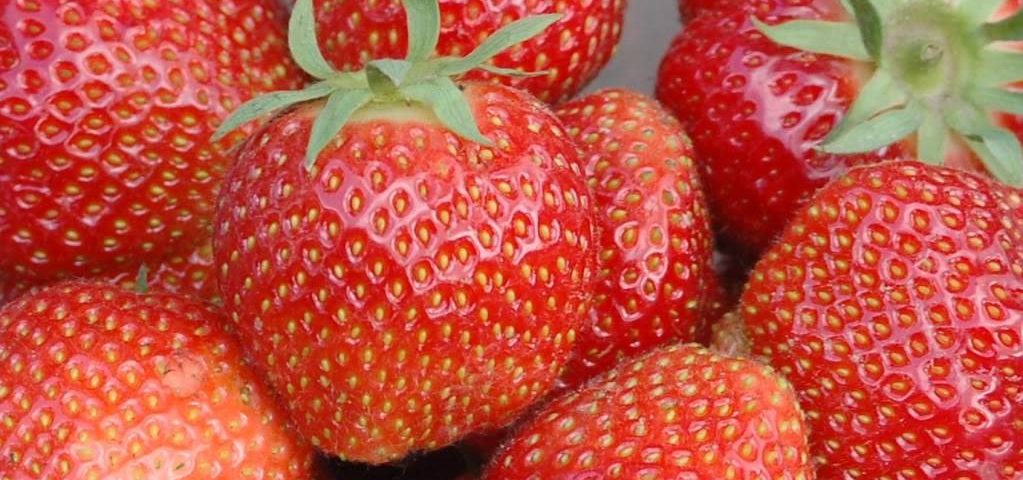Less than a cupful of whole strawberries a day led to a significant decrease in colon inflammation and reversal of the pro-inflammatory gut microbiome in a mouse model of inflammatory bowel disease (IBD), according to new data.
The study, titled “Dietary intake of the whole strawberry inhibited colonic inflammation, restored immune homeostasis and alleviated gut microbiota dysbiosis in dextran sulfate sodium-treated mice,” was presented this week at the 256th National Meeting & Exposition of the American Chemical Society in Boston.
Diet and the natural microbes that populate the intestine — the gut microbiome — are two key factors that influence IBD’s disease course. Increasing research suggests that a diet rich in fruits and vegetables is linked to a lower risk of IBD.
Strawberries, which are widely consumed around the world, are associated with a variety of potential health benefits. Previous studies have focused on the health benefits of purified compounds and extracts of strawberries but not of the whole fruit, which contain other sources that may also carry therapeutic benefits.
“When you only test the purified compounds and extracts, you miss out on a lot of other important components in the berries, such as dietary fiber, as well as phenolic compounds bound to the fibers, that can’t be extracted by solvents,” Yanhui Han, a PhD student at the University of Massachusetts Amherst who conducted the study, said in a press release.
Researchers evaluated the potential of eating whole strawberries to decrease intestinal inflammation in an IBD mouse model with dextran sulfate sodium (DSS)-induced colitis.
They fed three different diets to these mice — in one group, the animals received a regular diet, while in the second, 2.5 percent of the diet included whole strawberry powder, and the third group with a diet of 5 percent whole strawberry powder. A fourth group of healthy mice fed a regular diet was also included.
The percentages of whole strawberry powder were calculated to correlate with what a human would normally consume.
Dietary consumption the equivalent of three-quarters of a cup of strawberries per day in humans significantly suppressed symptoms of body weight loss and bloody diarrhea in the IBD mice. Researchers saw a reduction in disease activity, and eating strawberries also prevented colon shortening and spleen enlargement in the animals.
The number of pro-inflammatory immune cells and their signaling molecules — including tumor necrosis factor (TNF)-alpha, interleukin (IL)-1, and interferon (IFN)-gamma — was also reduced. Consumption of whole strawberry powder also led to a remake of the gut microbiome.
Specifically, it partially reversed the unhealthy microbiota composition in the IBD mice — characterized by a higher number of Akkermansia and Dorea bacteria — and substituted it by increasing the abundance of beneficial bacteria, such as Lactobacillus and Bifidobacterium.
Results also showed that strawberries had an impact on normalizing metabolic pathways in the IBD mice by decreasing the production of so-called short chain fatty acids, likely a contributor to lower levels of colonic inflammation.
“Our findings revealed the anti-inflammatory effects and mechanisms of dietary WS [whole strawberry] in the colon, which is critical for the rational utilization of strawberry as a dietary agent for the prevention of inflammation-driven disease,” the researchers said.
Now they intend to validate their findings in IBD patients. These results are preliminary, and while they support the health benefits of three-quarters of a cup of strawberries a day, patients should consult their doctors before changing their diets.

